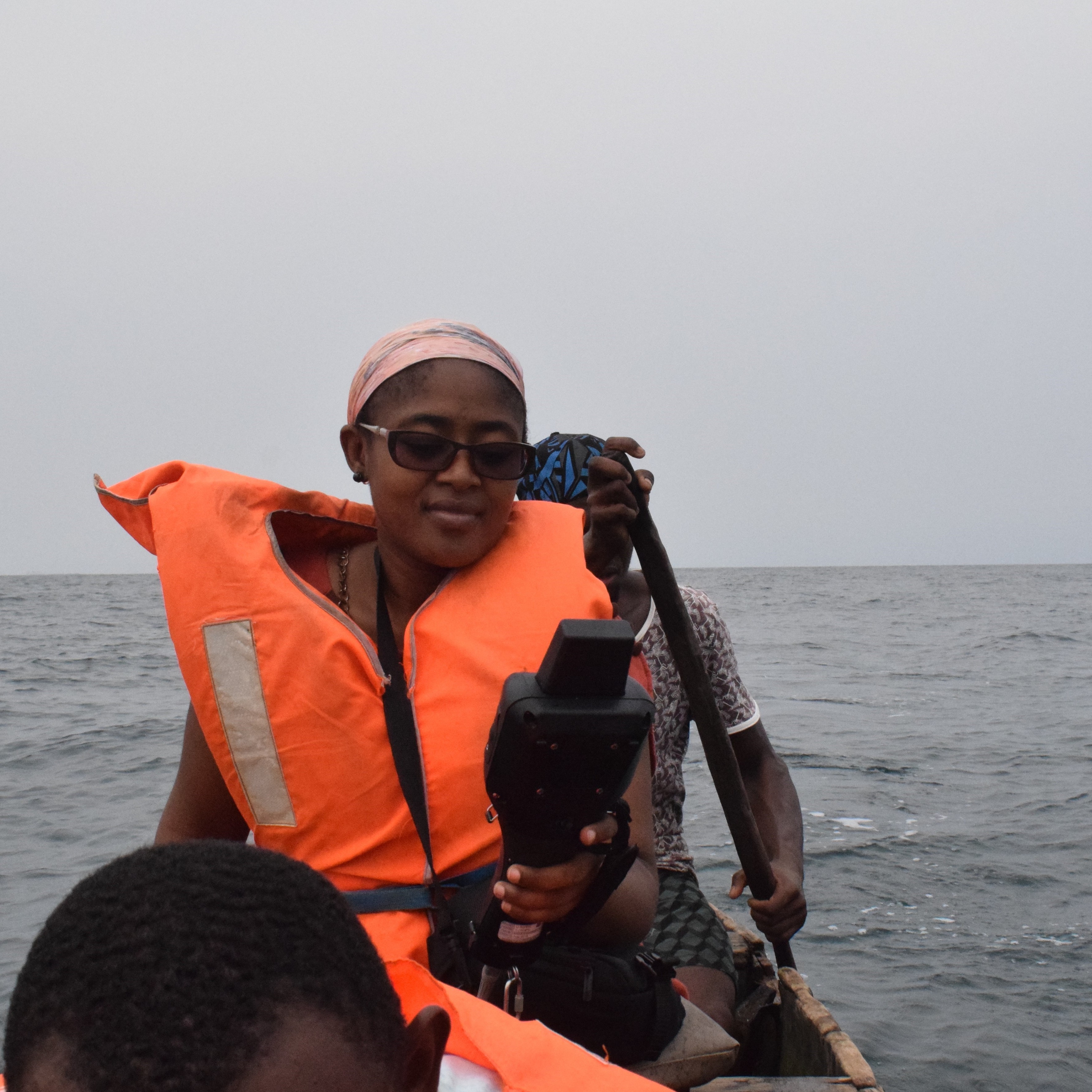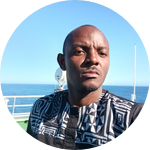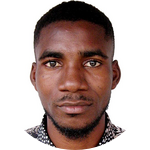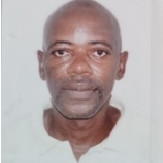About This Project
This project will help us to evaluate the vulnerability of clam fishing to ocean acidification (OA) in the lower Sanaga delta in the Douala-Edea national park, and assess potential consequences on local communities. Data and information collected will be used to inform environmental manager and rising public awareness on OA and its consequences, as this research thematic is completely new and unknow in the Cameroon context.
Ask the Scientists
Join The DiscussionWhat is the context of this research?
In Cameroon, clams are exploited along the Sanaga delta for meat and shell by local fishermen with an estimated production of over 800 tons per year, and constitutes the major source of income and food for local communities. The most exploited specie is Galatea schwabi (Clench, 1929). The ocean acidification (OA), which is a global threat mainly caused by the ocean absorption of the atmospheric anthropogenic carbon dioxide (CO2), is known to have negative impact on mollusks including clams and oysters. Under this process, the ability of these organisms to build their shell and skeleton is reduced due to the decreasing of seawater pH and the reduction of carbonate ions concentration. Currently, no information related to OA is available in this area. We are wondering if local communities are aware of the potential impacts of OA on their activity, and wanted to understand the current conditions, regarding to OA parameters, clam organisms are experiencing to anticipate changes.
What is the significance of this project?
This project will bring out the first information concerning OA in this area, and gathering information from local communities about their perception of the potential impact of OA on clam fishing in the area. The results of this project will then be used to call the attention of the park managers, local scientific community and the local population to the threat of OA. This project will also be a step toward a long-term monitoring and production of relevant data to build reasonable basis for the prediction of future changes in water chemistry in the area and anticipate future consequences on clam fishing.
What are the goals of the project?
Two goals drives our project: firstly, produce information about the level of awareness of local population of the lower Sanaga delta about OA and its impact on their activities, and secondly assess the current environmental and chemical conditions experienced by clams, organisms vulnerable to ocean acidification.
We will be conducting surveys within the clam-fishing community to find out their level of awareness of OA, and information on indigenous practices that enable them to maintain their activity and make it sustainable. We will also carry out representative water sampling to monitor the OA indicators in the study area using GOA-ON in box kits, and referenced methods to understand the current conditions experienced by clam organisms. The results obtained and other information on OA will be shared with the local population, park managers and scientists during a mini workshop, and used as basis of future research.
Budget
We will like to make this project as the basis of a long-term monitoring plan that will be conducted on potential vulnerable marine ecosystem of the Cameroon coastal area to ocean acidification. The budget was build taking into consideration some field and laboratory equipment that will be provide by The Ocean Foundation in the framework of the BIOTTA (Building Capacity in Ocean Acidification Monitoring in The Gulf of Guinea) project in the Gulf of Guinea. Then, as the study area is far from the residence of members of the team, transport and accommodation will take a considerable part of the budget. In the study area we will need a local guide to introduce us to local communities and will hire a boat with a local pilot to collect samples in the Sanaga delta area. At the end of the project, we will organise a mini workshop to share our results with the communities and raising awareness about ocean acidification and its impacts.
Endorsed by
 Project Timeline
Project Timeline
Field work will start with a community survey at the lower Sanaga delta, with questions about the population's knowledge of ocean acidification and its potential impact on their activity, the various changes observed, the probable causes and solutions they could propose. During this phase, we will also identify the main fishing points in the area and select our sampling stations. Monthly water sampling campaigns will then be organised and data analysed to produce posters and papers.
Mar 28, 2025
Project launched
Apr 15, 2025
Production of surveys documentation
Apr 24, 2025
Travel to the study area and launching of the community survey
Jun 05, 2025
Lauching of water sampling
Jun 25, 2025
Post pictures of field work and lab note on our observations so far
Meet the Team
Affiliates
Affiliates
Ulrich Joel Felicien Bilounga
I am PhD candidate in marine sciences at the University of Douala (Cameroon) with emphasis in Marine Ecology and Biogeochemistry. My research interrest is about the variability of carbonate system and assessment of potential impact of ocean acidification in marine ecosystems of the southern coastal ocean of Cameroon. I graduated in 2018 with a Master’s degree in Research and Development in coastal and marine environments from the University of Douala. It was during these Master’s years that my interest in the study of ocean acidification (OA) started, after a training course on chemical and biological aspects of OA organised by GOA-ON in Dakar (Senegal). Since then, I have taken part in several training courses, both online and onsite, on various aspects and techniques of monitoring and conducting research on OA. I am currently the country Focal Point of the BIOTTA project, which aims to build capacity in OA monitoring in the Gulf of Guinea. I am also interested in ocean observation, having taken part in shipboard training and seagoing campaign as part of a POGO fellowship. Professionally, I work as Research Technician at the Specialised Research Station on Marine Ecosystems of Kribi, a research station under the Cameroon Ministry of Scientific Research and Innovation. My daily work involves participating in the organisation of data collection campaigns in the ocean and coastal environment, and in Cameroon’s main rivers. I am also member of the data analysis team and assist senior researchers in their work. My skills include the use of various tools and equipment of data collection and observation of the marine and coastal environment, data analysis using several tools such as R and Python programming languages, laboratory analysis and scientific writing.
Ernest Ohandja Nomo
Mr. Ernest Ohandja Nomo is an early-career researcher specialising in coastal and marine monitoring. He holds a Master’s degree in Integrated Management of Coastal and Marine Environments from the University of Douala (Cameroon) and conduct applied research at the APCAM research association. His work focuses on using benthic communities to monitor Biogeochemical conditions in coastal ecosystems, which is crucial for understanding marine environmental dynamics. He is passionate about ocean conservation and committed to address global environmental challenges, including climate change, pollution, and marine biodiversity loss. He is involved in several international initiatives, such as the BIOTTA project (ocean acidification), GEM (eutrophication monitoring), and AAORIA (Atlantic Ocean Resilience Innovation Alliance). These collaborations allow him to contribute to global research on ocean health and develop sustainable solutions for marine management. His technical skills include programming, cartography, and data management, and he is continuing to develop his expertise to support sustainable coastal ecosystem management and protection against increasing environmental pressure.
Dicka Kwambe Henock Emmanuel
My name is Dicka Kwambe Henock Emmanuel, an environmentalist, and water, forest and hunting engineer. I obtained my Master of Engineering at the faculty of agronomy and agricultural sciences from the University of Dschang (Cameroon), and a Master of Sciences in Environmental Ecology and Biodiversity from the faculty of sciences of the University of Douala. My research work was mainly focused on the fauna and flora of mangrove forests. For more than a decade, we have been witnessing a very advanced degradation of this very fragile ecosystem which plays a very important role in the balance of our environment. I coordinate a scientific team that work to restore more than 90% of a degraded plots in the southern coast of Cameroon with a visible results today. In this momentum, we participate directly or indirectly in the fight against climate change and marine pollution. Since I joined the Agricultural Research Institute for Development as Scientific and Research Engineer, I have participated in several training courses related to the marine environment. These include, among other, measurements of the physicochemical parameters of sea and river waters, and sampling of mangrove sediments in estuaries. These outings allowed me to write and contributes in several research articles, notably the most recent, namely: Dendrometrical Structure and Physicochemical Analysis of Mangrove Sediments from the Nyong River Estuary (Cameroon, Atlantic Coast). To date, we can give an exhaustive list of benthic organisms threatened with extinction in our aquatic environments and constitute a reliable database to compare with other environments much more distant from the Gulf of Guinea to establish any verification
Lab Notes
Nothing posted yet.
Project Backers
- 0Backers
- 0%Funded
- $0Total Donations
- $0Average Donation



